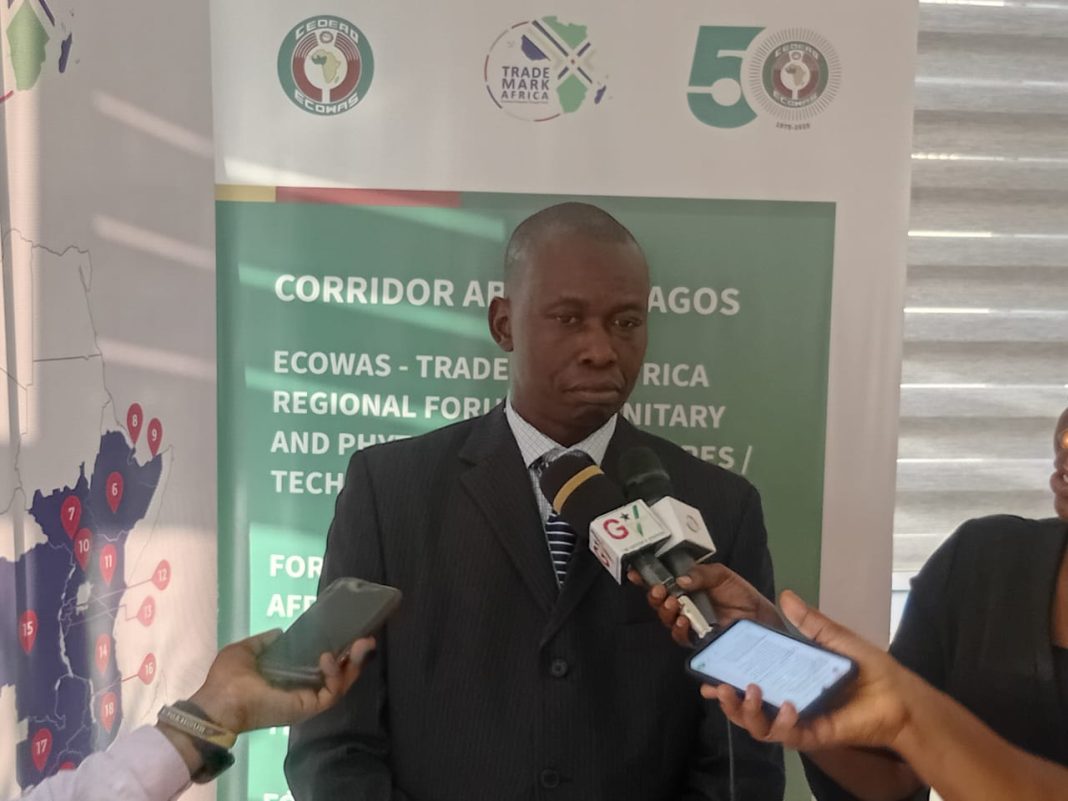By Jibril Abdul Mumuni
Accra, Nov 22, GNA- Trademark Africa has called for the urgent harmonisation of food safety and plant health standards across the Economic Community of West African States (ECOWAS) to dismantle technical barriers and facilitate seamless cross-border trade.
Ms. Anthe Vrijilandt, Director Strategy and Partnership at the Trademark Africa, highlighted the persistent challenges traders face, including lengthy delays and goods perishing at borders due to fragmentation standards and regulations.
She said this at a crucial initiative, highlighted by the Abidjan-Lagos Corridor SPS/TBT Forum held in Accra from November 19-21, 2025.
The Forum aimed to dismantle technical barriers to trade (TBT) and facilitate seamless cross-border commerce along the region’s busiest artery.
The ongoing three-day meeting is expected to yield a definitive roadmap to drive the harmonisation agenda forward.
The event saw attendance from heads of standards regulatory bodies within the West-African deliberate on how harmonise standards ensure consistency on quality assurance in the sub-region.
She emphasised that while the region, particularly Ghana, often enjoyed food surplus, these goods frequently failed to reach neighbouring markets due to inconsistent regulations and a lack of mutual recognition of laboratory tests.
“You cannot get the food easily across borders because of those issues. They’re stopped at the borders, sometimes even for two, three weeks. Now if you leave bananas for three weeks at the border, you tell me what happens to them,” she said.
She called for mutual recognition, where a test in one country was trusted by all, or full harmonisation, where all member states adopt identical standards.
“Trade is about trust. I trust your bananas, I trust your tomatoes. If it’s not the case, then we cannot trade,” she added.
The Abidjan-Lagos Corridor, linking Côte d’Ivoire, Ghana, Togo, Benin, and Nigeria, is a vital economic route, handling over 70 per cent of the ECOWAS Gross Domestic Product and more than 50 million tonnes of freight annually.
Despite this significance, the corridor is notorious for delays and high trade transaction costs.
According to the World Bank, the economic cost of trade compliance in Sub-Saharan Africa is the highest in the world.
It can be two or three times more expensive to trade within Africa than with the rest of the world, largely due to cumbersome border procedures and regulatory divergence.
A study by the African Development Bank (AfDB) found that customs and administrative procedures at borders could account for up to 30-40 per person cent of the total time required to transport goods.
Mr. Midaye Koissi, Principal Programme Officer for Quality and Standards at the ECOWAS Commission, identified the duplication of quality controls as a major impediment to trade along critical corridors like the Abidjan-Lagos route.
“The product must be tested in Ghana first. And when it reached Cote d’Ivoire, the product must be also tested. That brings duplication that costs money for the traders and makes goods stay at the borders,” he said.
He revealed that the ECOWAS Commission has a dedicated committee working on standard harmonisation, which, once approved, would allow goods certified in one member state to be recognised across the region.
The partnership with Trademark Africa, he noted, is aimed at leveraging the organisation’s proven expertise from East Africa to develop and implement a concrete action plan.
GNA
Edited by Christian Akorlie
